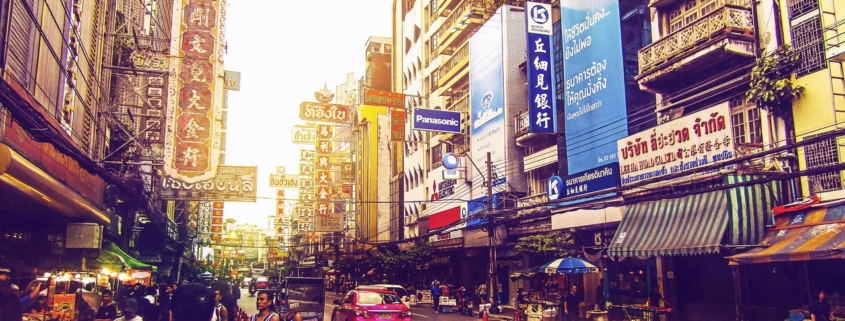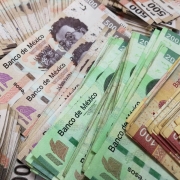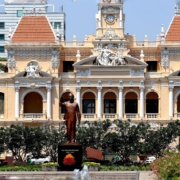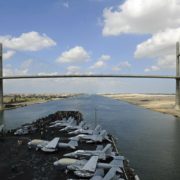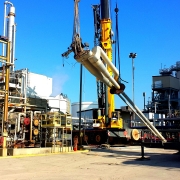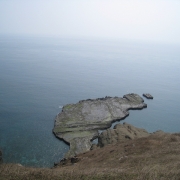Why was NEDCOL created?
Topic of Study [For H2 History Students]:
Paper 2: Economic Development after Independence
Section B: Essay Writing
Theme II Chapter 1: Paths to Economic Development
Historical context: Rise of NEDCOL
After the end of World War Two, Prime Minister Plaek Phibunsongkhram led his government to oversee economic recovery. As a result of economic isolation, Thailand‘s rice trade declined significantly, with the exception of its continued trade efforts with imperial Japan during the war.
As part of its efforts to carry out import-substitution industrialisation (ISI), the Phibun government oversaw the creation of state agencies, such as the National Economic Development Corporation Limited (NEDCOL).
NEDCOL was established in 1954 as a holding company with five manufacturing subsidiaries, namely two sugar mills, a jute mill, marble factory and paper mill. NEDCOL functioned as a guarantor of loans, supporting the growth of Thai and Chinese businesses.
During the period 1947-57 development strategy, while never clearly stated, had all the characteristics of ISI. However, these policies did not centre on tariff protection. Tariffs were treated primarily as sources of revenue. In addition, Akrasanee and Juanjai have suggested that the Phibun regime ‘deliberately avoided protecting industries for fear of promoting the Chinese community’. Rather industrialisation was promoted through the direct participation of the state in production.
State enterprises were set up with monopolies in such areas as brewing, paper manufacture, sugar refining and gunny sack production. […] Through NEDCOL the state acted as a guarantor of loans enabling comparatively large-scale foreign funding to be obtained for many of these enterprises.
An excerpt taken from “South East Asia in the World-Economy” by Chris Dixon.
Notably, the government’s share of domestic investment from 32% in 1952 to more than 38% in the period 1953-55, highlighting the key role that direct state investment played in the manufacturing sector.
Political clashes: Phibun vs Sarit
However, NEDCOL did not last as it became bankrupt in 1957. It coincided with the year in which Field Marshall Sarit Thanarat led a coup d’état against Phibun on 16 September 1957. It was revealed that corruption plagued NEDCOL, thus explaining the lack of productive investments.
NEDCOL was established in 1954 and was administratively subordinate to the Ministry of Defence. The Minister of Finance was closely affiliated with General Phao, the Director-General of the Police. When a coup d’état ousted Phao’s patron, in 1957, it was discovered that less than half the funds allocated to NEDCOL had actually been used for investment purposes. The remainder had disappeared. The belief is that these funds were used to keep Phao’s political clique together. This sort of activity has been repeated innumerable times since 1950.
An excerpt taken from “World Peace and the Developing Countries: Annals of Pugwash” by Joseph Rotblat and Ubiratan D’Ambrosio.
Picking up the pieces: post-NEDCOL
In the wake of the fallout, the Sarit government had to take over the company. With support from foreign economic advisor, John Alfred Loftus, the government managed to restructure and salvage the factories. As for the debt accumulated by NEDCOL, Loftus was able to renegotiate and extend the debt payment structure.
The NEDCOL experience stands out because of the foreign financial obligations it imposed on the Thai budget for five years and because it was the largest single industrial venture of the period. […]
Loftus was chagrined by the entire state enterprise policy and the economic wastage he observed that flowed from the disregard for ordinary good business practice. In a memorandum from 1961 addressed to M. L. Dej Snidwongse, the chairman of the Executive Committee of the National Economic Development Board (NEDB), Loftus observed that the government lacked even basic data on its own enterprises, was in no position to exercise financial or policy control over these enterprises, was allocating resources to them without applying any criteria or objectives, and was tolerating gross inefficiency in their operation.
An excerpt taken from “The Fifth Tiger: Study of Thai Development Policy” by Robert J. Muscat.
What can we learn from this article?
Consider the following question:
– How far do you agree that that expertise was most crucial in determining the economic development of Southeast Asian states after independence?
Join our JC History Tuition to learn more about the Paths to Economic Development. The H2 and H1 History Tuition feature online discussion and writing practices to enhance your knowledge application skills. Get useful study notes and clarify your doubts on the subject with the tutor. You can also follow our Telegram Channel to get useful updates.
We have other JC tuition classes, such as JC Math Tuition and JC Chemistry Tuition. For Secondary Tuition, we provide Secondary English Tuition, Secondary Math tuition, Secondary Chemistry Tuition, Social Studies Tuition, Geography, History Tuition and Secondary Economics Tuition. For Primary Tuition, we have Primary English, Math and Science Tuition. Call 9658 5789 to find out more.

